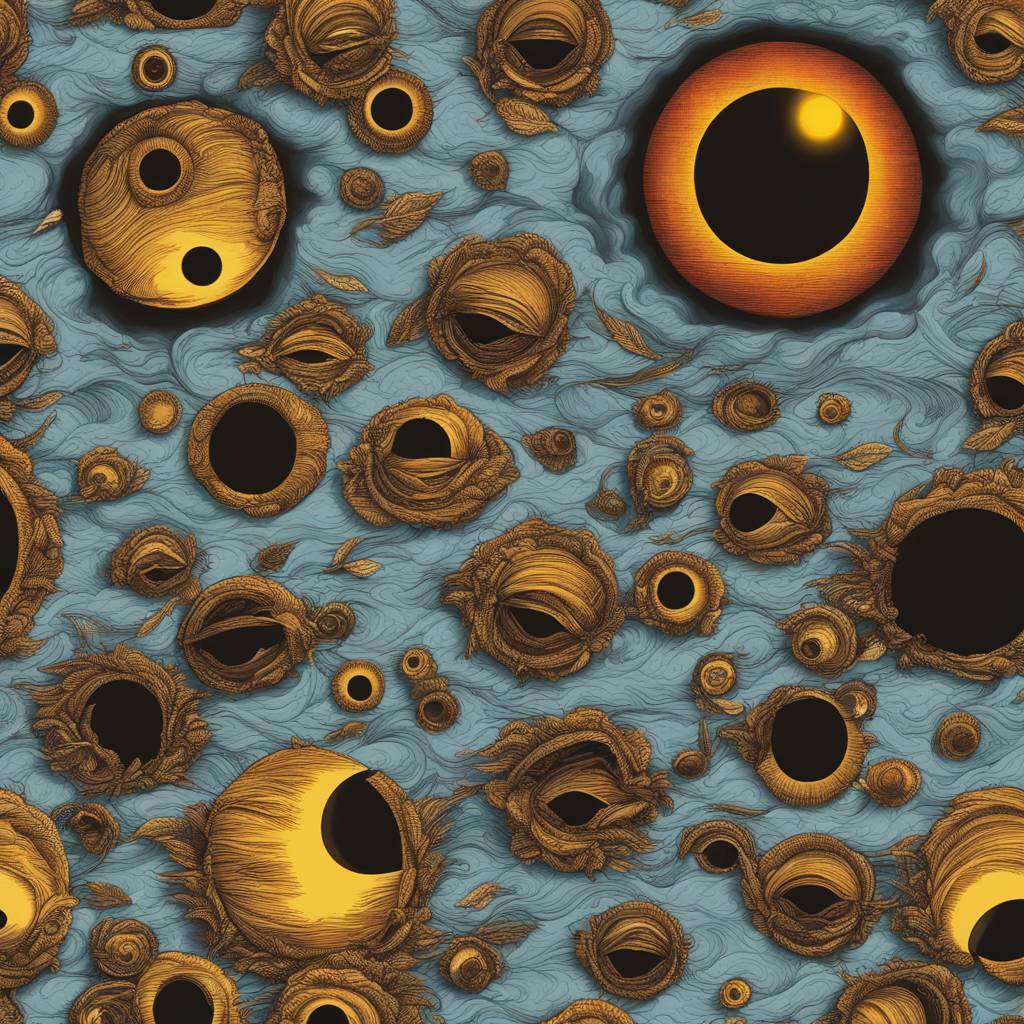Millions of people gathered outside on Monday, April 8 to witness a solar eclipse passing over the continental United States. Viewing a solar eclipse can cause eye damage without proper protection, as looking directly at the sun can already cause discomfort on a normal day. The American Academy of Ophthalmology (AAO) recommends several safe ways to view an eclipse, such as using eclipse glasses or solar filters on equipment like binoculars or telescopes. However, unsafe methods of viewing the eclipse include looking directly at the sun with bare eyes, wearing regular sunglasses, or looking through an unfiltered camera lens.
There is no safe time to look at the sun without proper eye protection, according to experts. Staring at the sun can cause severe damage to the retina, leading to burns or holes in vision due to the focused energy from the light. This condition is known as solar retinopathy, where the sun’s ultraviolet rays can damage the retina in a matter of seconds. While complaints of eye issues and injuries after eclipses have been documented, long-term damage is relatively rare. Symptoms of solar retinopathy can include watery eyes, headaches, sensitivity to light, eye pain, color deficiencies, and distorted vision.
Anyone can develop solar retinopathy from looking at the sun, but children and young adults are at increased risk. If you experience a headache after viewing the solar eclipse, it may be a mild symptom of solar retinopathy. Over-the-counter pain medication can help alleviate the pain, but if the headache persists or is accompanied by other symptoms, it is recommended to contact a healthcare provider. People experiencing vision problems following the eclipse should see an ophthalmologist immediately for evaluation and testing to check for signs of damage. While there is no specific treatment for solar retinopathy, some may recover their vision over time, although about 25% of patients develop permanent damage.
If you have eye pain or headaches after the eclipse, it is likely nothing significant, according to experts. Over-the-counter pain medication can help relieve symptoms, and people should avoid bright light sources if they experience light sensitivity. It is crucial to always wear sunglasses that offer full protection against UVA/UVB rays while outdoors during daylight hours to protect the eyes from damage. Severe cases of solar retinopathy can lead to irreversible vision loss, and there have been cases of people becoming legally blind in at least one eye from viewing a solar eclipse. Despite this, long-term damage or vision loss after viewing an eclipse is not common, and research suggests that mild symptoms and vision problems usually resolve on their own.













